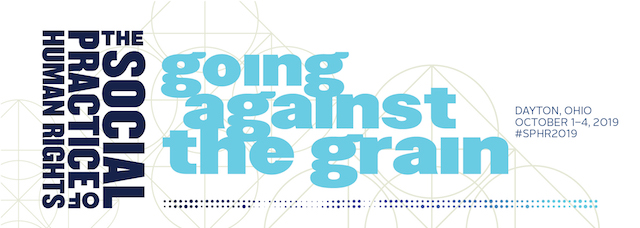Location
Reimagining and Decolonizing Human Rights
Start Date
10-2-2019 11:30 AM
End Date
10-2-2019 1:00 PM
Keywords
Catholic Church, right to religious freedom, Islam, democracy.
Abstract
It is generally agreed that the Catholic Church formally committed itself to modern human rights in 1963 as a result of Pope John XXIII’s encyclical, Pacem in Terris.But it was the more specific historical development regarding the right to religious freedom that took place two years later at the Second Vatican Council, which really prompted global change. As Samuel Huntington wrote, the Church’s commitment to religious liberty on the part of all persons (and to the liberty of non-religious persons) had an extraordinary impact on democracy movements around the world. Indeed, Huntington referred to these movements as a “Catholic wave.”
At a moment when democracy appears increasingly threatened by various authoritarian nationalist and populist forces across the globe, and the Islamic world, in particular, is experiencing a retreat from the hopes of the Arab Spring, it seems pertinent to explore how the right to religious freedom is conceived and practiced amongst Muslims. In the latter case, one thinks in particular of the dashed hopes in Egypt between 2011-13, which were caused, at least partly, by the lack of faith on the part of Coptic Christians and other “liberally-minded” citizens to the government of the Muslim Brotherhood. Unlike the Catholic Church, the Brotherhood had failed to reform itself with respect to issues such as religious freedom and thus, for many people, was simply unprepared to govern. There are, of course, practical considerations for why such reform did not take place (not least the effects of colonialism in Egypt). But what are the theological issues? In this paper, I will explore the extent to which Islam can embrace a universal right to religious freedom, bearing in mind the implications that such commitment might have not only for the citizens of Egypt, but also for Muslims (and non-Muslims) across the Islamic world.
Author/Speaker Biographical Statement(s)
Matthew Bagot, Associate Professor of Theology, Spring Hill College, holds a Ph.D in theological ethics from Boston College and has taught at Spring Hill College for twelve years. His research interests encompass three main areas: Catholic approaches to national state sovereignty and global governance; the confluence between Catholic Social Teaching and Islamic social ethics; and Luigi Sturzo.
Included in
The Right to Religious Freedom and its Political Significance: Catholic and Islamic Approaches
Reimagining and Decolonizing Human Rights
It is generally agreed that the Catholic Church formally committed itself to modern human rights in 1963 as a result of Pope John XXIII’s encyclical, Pacem in Terris.But it was the more specific historical development regarding the right to religious freedom that took place two years later at the Second Vatican Council, which really prompted global change. As Samuel Huntington wrote, the Church’s commitment to religious liberty on the part of all persons (and to the liberty of non-religious persons) had an extraordinary impact on democracy movements around the world. Indeed, Huntington referred to these movements as a “Catholic wave.”
At a moment when democracy appears increasingly threatened by various authoritarian nationalist and populist forces across the globe, and the Islamic world, in particular, is experiencing a retreat from the hopes of the Arab Spring, it seems pertinent to explore how the right to religious freedom is conceived and practiced amongst Muslims. In the latter case, one thinks in particular of the dashed hopes in Egypt between 2011-13, which were caused, at least partly, by the lack of faith on the part of Coptic Christians and other “liberally-minded” citizens to the government of the Muslim Brotherhood. Unlike the Catholic Church, the Brotherhood had failed to reform itself with respect to issues such as religious freedom and thus, for many people, was simply unprepared to govern. There are, of course, practical considerations for why such reform did not take place (not least the effects of colonialism in Egypt). But what are the theological issues? In this paper, I will explore the extent to which Islam can embrace a universal right to religious freedom, bearing in mind the implications that such commitment might have not only for the citizens of Egypt, but also for Muslims (and non-Muslims) across the Islamic world.



